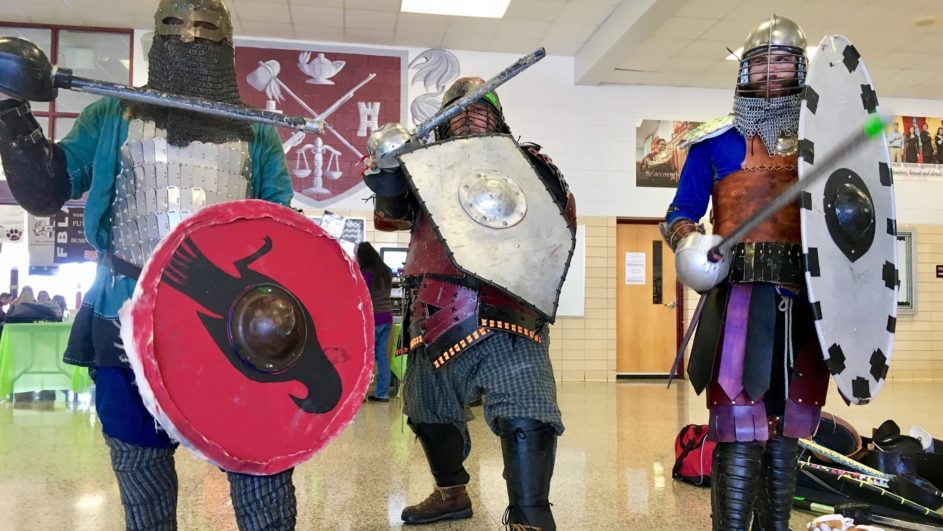On Saturday, March 2, Bearden High School will host Medieval Day, a celebration of the culture and history of the period from 300 to 1700 AD/CE.
The event is co-sponsored by the Marco Institute for Medieval and Renaissance Studies at the University of Tennessee and is free and open to all middle school and high school students and teachers in Knox County. The event is from 11 a.m. to 3 p.m.
In this electronic Q-and-A, the Marco Institute’s program coordinator, Dr. Katie Hodges-Kluck, talks about what makes the event unique and why the medieval period is still important.
Hall Pass: Why does the Marco Institute host Medieval Day?

Katie Hodges-Kluck
Katie Hodges-Kluck: Part of the Marco Institute’s outreach initiative is to encourage students of all ages to think about the humanities – fields like history, literature, languages and more – as something exciting and worth exploring. We also want students to know that they can study these and other related subjects in college.
To this end, for the past several years we have partnered with Bearden High School and the Barony of Thor’s Mountain, a local chapter of the Society for Creative Anachronism, to bring medieval culture to middle and high school students and teachers in the Knoxville area.
HP: What do students enjoy the most about Medieval Day?
Hodges-Kluck: Medieval Day has something for everyone. Students enjoy catching the medieval fighting demonstrations put on by the SCA, shooting model catapults, and trying their hands at writing with quill pens on parchment, just like medieval scribes would have done. This year’s event will also include medieval music, crafts, presentations by UT faculty and graduate students, door prizes and more.
HP: What about the medieval period makes it worthy of study and attention?
Hodges-Kluck: So much of our modern culture, from politics to religion to entertainment, is shaped by the legacy of the Middle Ages, as well as by modern misconceptions about the period.
The medieval period saw the development of innovations that today we take for granted, like the format of the modern book. Long-distance trade allowed monks in the British Isles to paint illuminated manuscripts using ink materials from the foothills of the Himalayas, and modern languages like French and Spanish took shape during this era.
Medieval thinkers shaped religious and philosophical ideas that still survive today, and medical and astronomical sciences also greatly advanced during the period. It is immensely rewarding to open an 800-year-old manuscript and become immersed in the concerns, hopes and imaginations of the people who created it.
HP: What is the biggest misconception about the medieval period?
Hodges-Kluck: The medieval period is often viewed as “the Dark Ages,” a monolithic, dirty, violent, backward age full of disease, with few laws and with barbarians ravaging the countryside at every turn.
But the term “the Middle Ages” encompasses a vast period of approximately 1,000 years, across not only Europe, but also the Middle East, Central Asia and Africa. That’s a huge amount of time and space, full of countless different peoples and cultures, to be reduced into a single stereotype. In fact, the medieval period was often an era of innovation, exchange and the creation of works of exceptional beauty.
Josh Flory is a multi-media specialist with Knox County Schools and writes this blog, Hall Pass, for the KCS website.

